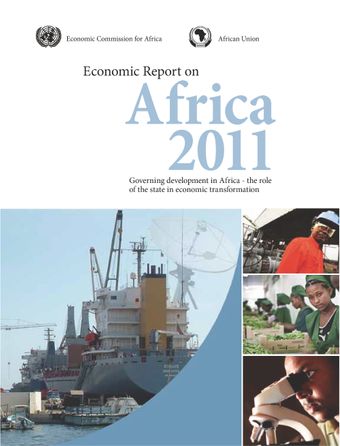- Home
- Books
- Economic Report on Africa 2011
- Chapter
Developments in the World Economy and Implications for Africa

- Author: United Nations
- Main Title: Economic Report on Africa 2011 , pp 11-28
- Publication Date: August 2011
- DOI: https://doi.org/10.18356/01a8b66a-en
- Language: English
After the global financial and economic crisis, the world economy demonstrated signs of recovery in 2010, although growth divergences persisted, particularly between the developed economies on the one hand, and emerging and developing countries on the other. Developed economies, in particular the United States (US), the European Union (EU) and Japan remained sluggish (IMF, 2010a). Unsustainable budget deficits and weakened fiscal positions caused by bail-outs of financial institutions led to a severe sovereign debt crisis in the EU in 2010. Some European countries responded by adopting stringent fiscal consolidation measures, which partly consisted of cutting back on public spending. Such consolidation took away many public service sector jobs, worsening the already high unemployment rate and acting as a drag on growth in the euro area and on the global economic recovery more widely. Developing and emerging economies, especially China and India, rebounded strongly, though their growhis slowing and the outlook is uncertain for 2011.
-
From This Site
/content/books/9789210547611c005dcterms_title,dcterms_subject,pub_keyword-contentType:Journal -contentType:Contributor -contentType:Concept -contentType:Institution105



